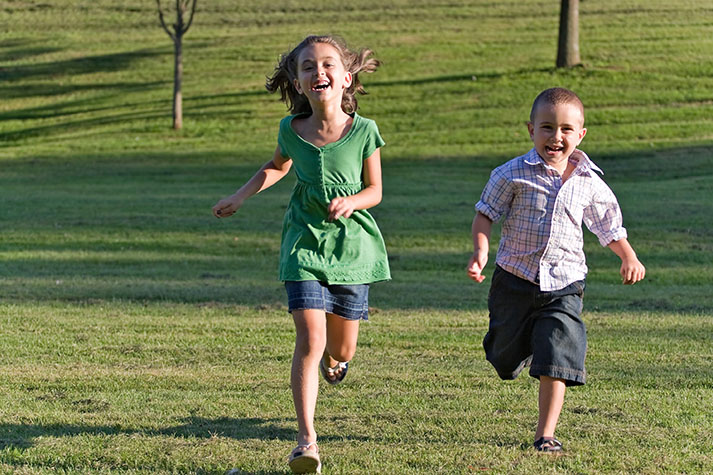
Bumps, bruises, falls, and spills are all part of a normal childhood. But when is clumsy too clumsy? If you notice specific warning signs in your child, they could have coordination impairments.
Children develop at different rates, so it's best not to compare your child to another. However, if you see that your child is unable to keep up with other kids their age in team sports or on the playground, they may have problems with gross motor coordination.
Does your child struggle with gross motor skills, such as running and crawling, that more than 75 percent of kids their age can complete? Or do they avoid gross motor tasks altogether, because they cannot do them? These could be signs of coordination impairments.
Other warning signs of coordination impairments include:
- Significantly delayed gross motor skills (greater than two months behind for children under 1-year-old, or six months or more behind for children older than one year)
- Frequent falls
- A child who rarely or never extends their arms to catch themselves to prevent their head hitting the floor from a fall
- Skips significant gross motor skills, i.e., crawling
- Difficulty climbing onto chairs, rocking horses, or bicycles
- Difficulty with a hard gross motor task, such as a baby unable to crawl over an obstacle; a 3-year-old unable to go up and down stairs switching feet, so only one foot is on a step at a time; a 4-year-old unable to ride a bike with training wheels or a tricycle; a 5-year-old unable to skip
- Daycare providers or teachers express concerns
If your child has any of these warning signs, they might suffer from dyspraxia. Children with dyspraxia have difficulty developing and executing motor plans that are fundamental for all coordinated movements.
Physical therapists can help children with coordination impairments learn advance gross motor skills to improve their safety, function, and ability to play with other children.
Katherine Searight Kirby is a pediatric physical therapist who sees children. Ask your primary care physician for a referral to our Pediatric Physical Therapy prove their safety, function, and ability to play with other children.
$webqFacilityNumber
Need a Physician?